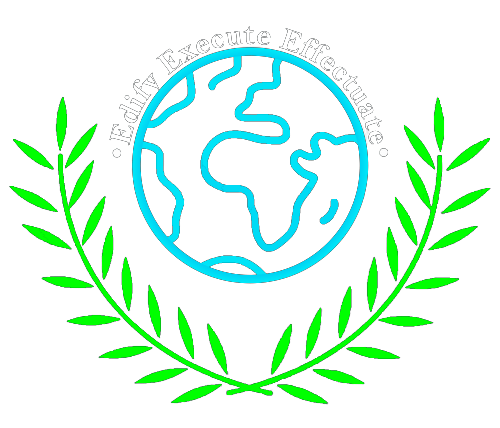Ayush Burnwal, Zaheen Qureshi, Sanjula D, Pankhudi Jha Introduction Education has been recognized as a human right across the world under numerous conventions, declarations and laws. The universal declaration of human rights guarantees everyone the right to education under article 26. In the Indian context, the Right to Free and Compulsory Education Act highlights the importance of education for children between the age of 6 to 14 years in India. This right is guaranteed to every citizen under article 21A of the Indian Constitution. Government intervention helps ensure that all children, regardless of their socioeconomic background, have access to education. This is crucial for reducing societal inequities. Education can be considered as an investment in the future of a nation. Well educated citizens will be productive members of a nation and will contribute to its stability and growth. Besides, the government of India is actively working towards ensuring that every citizen receives education to support their own needs and wants. To achieve the goal of full literacy, the government has been introducing a number of policies and programmes every year. One such programme which has been successful throughout the years is Sarva Shiksha Abhiyaan (SSA) which is the Government of India’s flagship programme for achievement of Universalization of Elementary Education in a time bound manner, as mandated by the 86th amendment to the indian constitution making free and compulsory Education to the Children of 6-14 years age group, a Fundamental Right. It aims to address the problems faced during the initial phase of a child’s education, which is, elementary schooling, where children begin to develop their cognitive and social skills. SSA focuses on providing quality elementary education while bridging regional gaps in literacy by partnering with state governments throughout the country. To address the nutritional needs of children, the government of Tamil Nadu introduced the mid-day meal scheme, which was soon implemented across the nation. By providing meals, this scheme increased the enrollment rates as hunger no longer served as a barrier to education. Furthermore, the Indian government introduced Kasturba Gandhi Balika Vidyalaya or KGBV which reduced gender disparities in education. Setting up residential schools with boarding facilities has been of assistance in encouraging girls from disadvantaged sections to get educated. All the above-mentioned policies are a few among many policies being introduced by the Indian government to make education accessible to every child in the country. Research Methodology 1. Research Design This study employs a descriptive and evaluative research design to assess the effectiveness of the Education system and Sarva Shiksha Abhiyan (SSA) based on public perception. The study does not focus on quantitative indicators such as enrollment rates or dropout rates but rather evaluates stakeholders’ opinions regarding SSA’s implementation and impact. A mixed-method approach was used, integrating quantitative survey responses with qualitative insights from personal interviews and discussions. The data was refined using a double-random selection process to enhance accuracy and reliability. 2. Data Collection The research relies on primary data collection, gathered through random selection of participants across various states using both online and personal investigations. 2.1. Primary Data Collection: (a) Online Surveys: A structured questionnaire was designed to collect responses from students, teachers, school administrators, and parents about their opinions on SSA’s effectiveness. The survey included questions on: Accessibility and inclusivity of education under SSA Perceived improvements in school infrastructure and facilities Quality of teaching and teacher training programs Challenges faced in policy implementation Overall satisfaction and suggestions for improvement (b) Personal Interviews & Field Surveys: In-person discussions and interviews were conducted to gain deeper qualitative insights into the challenges and successes of SSA and the education system. Respondents were encouraged to share their personal experiences with the policy’s impact. 2.2 Data Selection Process After the initial data collection, a random selection technique was applied at two levels: First Selection: An initial 100 responses were collected from various states. Final Selection: To eliminate potential biases and data inconsistencies, a computer-based random selection process was used to filter and refine the dataset. A final 30 responses were selected for analysis to ensure a more accurate and representative understanding of public opinion. 2.3 Secondary Data Collection Although the study primarily focuses on primary data, secondary sources such as government policy documents and past research reports were reviewed to understand the context of SSA’s implementation. 3. Data Analysis The collected data were subjected to general analysis to assess stakeholders’ opinions about SSA’s effectiveness. 4. Study Limitations Limited Sample Size: The final selection of 30 responses may not fully capture national trends. Subjectivity of Opinions: The study relies on personal perceptions, which may not always align with actual policy outcomes. Regional Variations: Since responses were collected from different states, regional disparities in SSA’s effectiveness may not be fully accounted for. 5. Policy Implications and Future Scope The findings provide a people-centric assessment of SSA’s impact, offering valuable feedback for policymakers. The study highlights key strengths and challenges in policy implementation, which can inform future education reforms. By employing random selection at multiple stages, this methodology ensures objectivity and reliability in evaluating public opinion on SSA. Findings and Insights The study analyses the real-world impact of the government policies aimed at the education sector, specifically focusing on Sarva Shiksha Abhiyan. The dataset encompasses educational qualifications, general awareness, and personal experiences with the education system. The objective is to analyse the effectiveness of policy implementations and assess the level of awareness of the education policies across different demographic groups. There were 100 responses, and a sample of 31 was randomly selected, taken in an online and physical interview format, of individuals from diverse backgrounds. Mainly, the data comes from Tamil Nadu, Madhya Pradesh, and West Bengal. By gender distribution, 74% were female and 26% were male. The majority were graduates (48%), while others had completed higher secondary. 1/2 of the individuals were between the 20-40 age group. Among state-specific schemes, Kanyashree Prakalpa, Sabooj Saathi, Prakalpa, Mid-Day Meal Scheme were most well known in West Bengal and Gaon ki Beti yojana was










